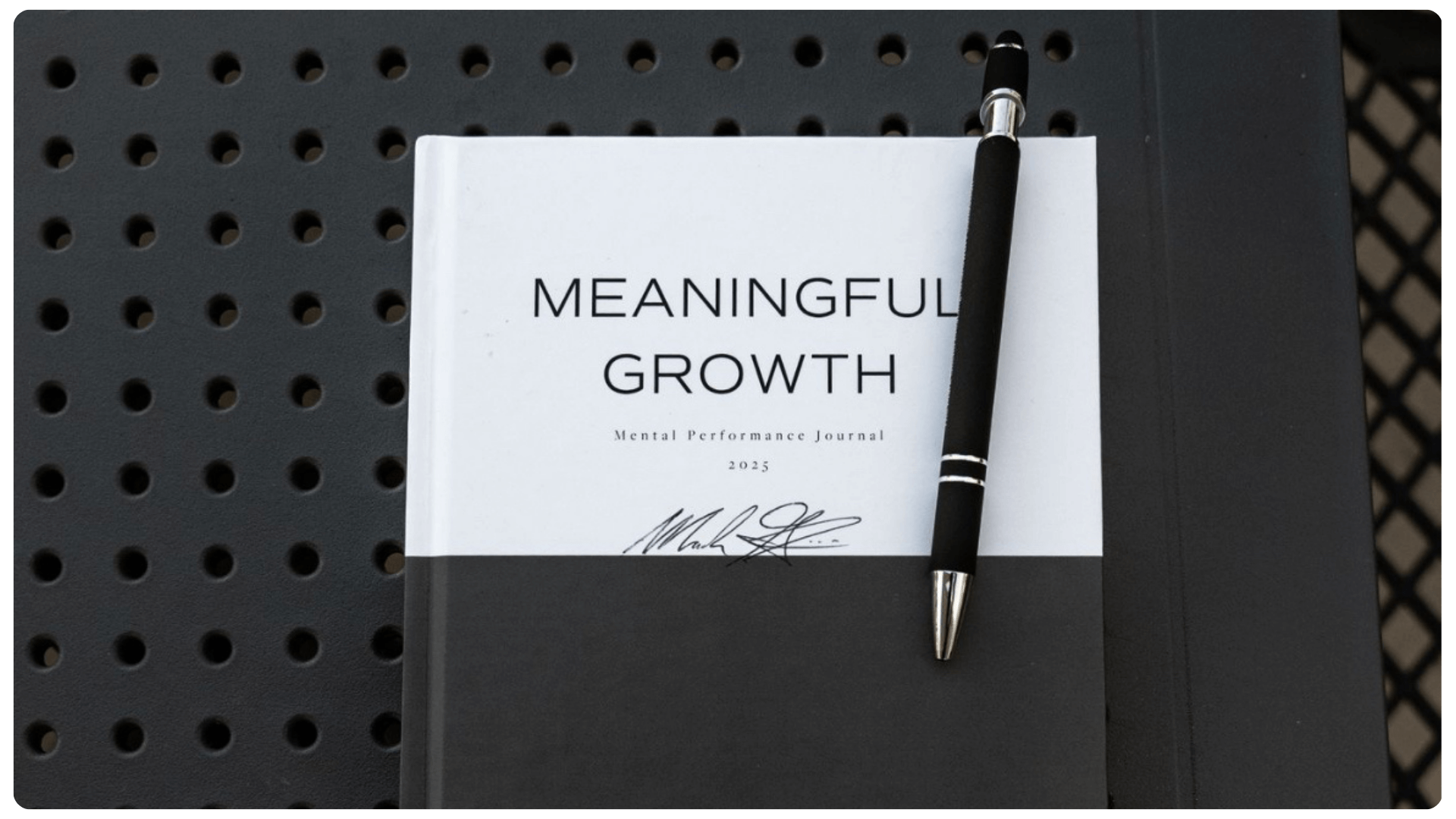Abracadabra
Abracadabra: “As I Speak, So I Create”
.png)
The best embody the opposites — They listen and talk. They follow and lead. They dream and do. They are kind and tough. The are structured and spontaneous. They are hopefully optimistic and rationally prepared.
One of my favorite stories comes from the Bible, specifically within the New Testament Gospels of Matthew, chapters 5-7: The Sermon on the Mount.
Its essence emphasizes a paradox: create a compelling future worth striving for and then focus on the path, process, and preparation necessary to achieve it. First, set the mind and then cultivate the appropriate mindset. An individual cannot keep his or her eyes on the prize at the same time he or she is trusting the process; however, both must be completed to attain righteousness.
Its core themes involve inner transformation, purity of heart, being salt of the earth and a light in the world. Its key encouragements are to aim for one’s own highest conceptual good, to “walk one’s narrow way” through a truth-filled gate, and to build one’s life on the rock of Jesus’ words. Its main messages both care for and challenge readers, at the same time.
Extended beyond metaphor, these teachings call for meditation on questions such as, Why are we here? What’s the best path forward? Who could we be if we became all we could be? How do we maintain a way through life with less suffering and more joy?
Furthermore, why not do the opposite of what’s stated in chapters 5-7: store up physical treasures on earth rather than spiritual ones in our hearts? Why not consume all we can while we can rather than fast from anger, lust, and pride? Why not judge and survive by any means necessary instead of mindfully and humbly striving for what’s most morally sound, sacred, and “true”?
Paying attention to what breaks our hearts provides perspective towards what we should pour our hearts into.
In the early 1800’s, a boy was born in a log cabin in Kentucky to an extremely poor family. Throughout his childhood, he worked as a farmhand, a rail-splitter, and a store clerk. In his early twenties, he began to engage in debates, to study law, and to work for the state legislation in Illinois. Just before his 50th birthday, he lost in the Senate race.
Two years later, in 1860, Abraham Lincoln was elected as the 16th President of the United States. In 1864, he was re-elected. During his presidency, he abolished slavery, reframed human equality, and relentlessly pursued the highest forms of liberty. In 1865, he was assassinated for this unwavering vision of the future: “malice toward none, with charity for all.” Should he have been more passive and tolerant of evil in order to protect his own life?
Despite early and often trials and tribulations, he became known as “Honest Abe” due to his moral clarity, his compassionate conviction, and his deep belief in unity through purpose rather than slavery through power.
What do The Sermon on the Mount and the story of Honest Abe have in common? Someone wealthy in spirit, pure in heart, and disciplined in mind leaves a legacy of hope, truth, and love. Conviction allows inner ideals to become outer realities.
A compelling future makes hardship bearable.
A compelling future makes suffering tolerable.
A compelling future provides insatiable courage.
Talent hits a target no one else can hit. Genius hits a target no one else can see.
– Arthur Schopenhauer, a philosopher known for his work on pessimism, preparation, and will
Who might we become when we dare to conceive, believe, and achieve our own compelling future?
— MG
Mark was born and raised in New Jersey where he became an elite high school student-athlete. He earned varsity letters as captain of his high school football, basketball and lacrosse teams and was elected into the National & Spanish National Honor Societies. He attended a post-graduate academic program at Deerfield Academy in Deerfield, MA before college where he earned his Bachelor of Arts degree in Economics from Yale University in New Haven, CT. He is currently a graduate student working toward his doctorate degree in Sport & Performance Psychology at San Diego University for Integrative Studies under Dr. Cristina Versari, Founder & CEO of SDUIS and former Head of Sport Psychology for the National Basketball Association. He is a Teaching Associate with Dr. Robert Gilbert, a Professor at Montclair State University (NJ) and a leading authority and author in the field of Applied Sport Psychology. Mark is currently the lead Mental Health & Wellness Player Advocate for the Premier Lacrosse League.
Mark is a Certified Fitness Trainer, Nutritionist, and Mental Performance Coach. He is currently pursuing a graduate degree in Sport & Performance Psychology at the San Diego University for Integrative Studies.
At Mark Glicini Peak Performance, we recognize that physical health reflects mental health. We study how intention drives behavior and emphasize that true peak performance requires an integrative approach—mind, body, and spirit.
As the Mark Glicini Meaningful Growth Foundation embarks on a journey of endurance and togetherness against the trials and tribulations brought upon by cancer, I state: every inch of my heart is in this.
Like so many, cancer has had a profound impact on my life. It took the lives of my grandfather and uncle before I was born. For years starting in 2011, I stood by my mother’s side as she battled and overcame lymphoma. Her fortitude, unwavering support from loved ones and God’s will triumphed amid extreme adversity.
Although we have not and may not win every fight, we will relentlessly strive to make an individual’s growth meaningful and to ensure his or her family feels cared for and supported. Thank you for your love, God Bless!

Our actions change our attitudes. Our movements change our moods. Our motions change our emotions.

Is it possible to be productive, stay healthy, and remain whole all alone?